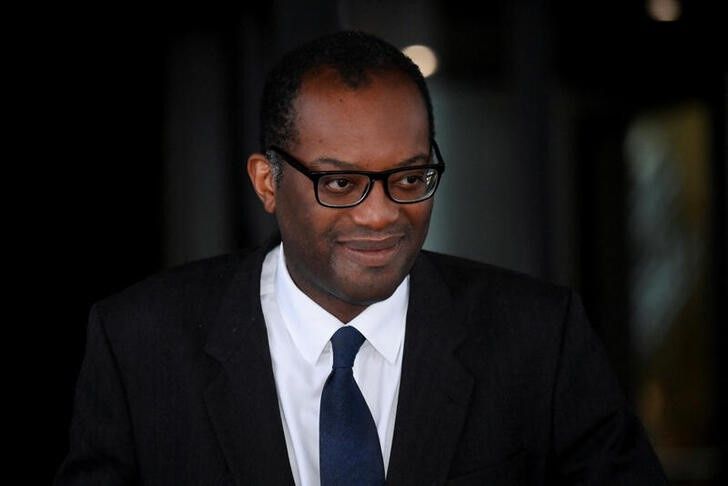British finance minister Kwasi Kwarteng needs to make 62 billion pounds ($69 billion) of spending cuts or tax rises to stop public debt growing ever-larger as a share of the economy, the Institute for Fiscal Studies (IFS) said in a report on Tuesday.

Interest rates for new long-term government borrowing leapt to a 20-year high last month, after Kwarteng announced 45 billion pounds of unfunded tax cuts, on top of even greater short-term support for households’ and businesses’ energy bills.
Kwarteng has sought to regain market confidence by scrapping a plan to axe Britain’s top rate of income tax – saving 2 billion pounds – and bringing forward plans for new forecasts and a debt reduction plan to Oct. 31.
But the IFS think tank – whose views on budget policy are closely watched in Britain – said Kwarteng would face an uphill struggle to convince sceptical markets that his plans will boost growth to 2.5% a year promised by Prime Minister Liz Truss.
“The Chancellor should not rely on over-optimistic growth forecasts or promises of unspecified spending cuts. To do so would risk his plans lacking the credibility which recent events have shown to be so important,” IFS director Paul Johnson said.
British government borrowing looks on course to hit 194 billion pounds this financial year and to still be 103 billion pounds in 2026/27 – 71 billion more than government forecasters predicted in March, the IFS said.
The IFS budget projections are based on relatively downbeat growth forecasts from U.S. bank Citi, which estimates that the British economy will grow by an average of just 0.8% a year over the next five years.
However, even if the economy grew a quarter of a percent faster each year, the government would still need to tighten fiscal policy by 41 billion pounds for debt to fall as a share of gross domestic product (GDP), the IFS said.























































![[FREE FREE MONEY] Predict and Win a Guaranteed GH¢200 From Us EVERY WEEK](https://wordpress.ghanatalksradio.com/wp-content/uploads/2022/02/Predict-and-Win-Final-09-03-2021-218x150.jpg)
![[Predict & Win – 8th/Oct.] WIN A Guaranteed ¢200 From Us This Week](https://wordpress.ghanatalksradio.com/wp-content/uploads/2021/10/maxresdefault-16-218x150.jpg)
![[Predict & Win – 2nd] WIN A Guaranteed ¢200 From Us This Week](https://wordpress.ghanatalksradio.com/wp-content/uploads/2021/09/maxresdefault-50-218x150.jpg)
![[Predict & Win – 25th] WIN A Guaranteed ¢200 From Us This Week](https://wordpress.ghanatalksradio.com/wp-content/uploads/2021/09/maxresdefault-36-218x150.jpg)
![[Predict & Win – 18th] WIN A Guaranteed ¢200 From Us This Week](https://wordpress.ghanatalksradio.com/wp-content/uploads/2021/09/maxresdefault-23-218x150.jpg)









![[National cathedral] See full list of churches that have contributed since 2018](https://wordpress.ghanatalksradio.com/wp-content/uploads/2020/09/Ghana-National-Cathedral-GhanaTalksRadio-100x70.jpg)



